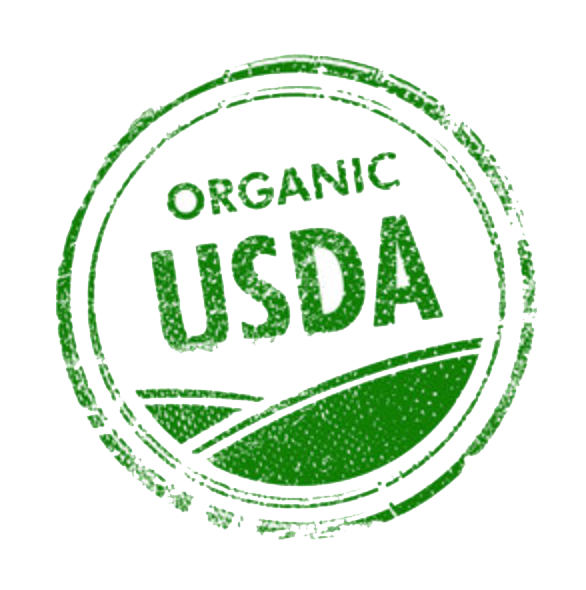
Coenzyme Q10 Effortlessly Supports You Through Seasonal Transitions
On the stage of life, we often encounter the "changing of the scenes" with seasons, transitioning from the warmth of spring to the heat of summer, then the crispness of autumn winds, and finally the chill of winter snow. Navigating these changes requires a robust "defense system" – our immunity – to ensure we remain unperturbed by external factors and maintain our optimal state. Coenzyme Q10 stands as an indispensable member of this defensive armada.

In essence, Coenzyme Q10 is a pivotal player in our cells' energy production. Imagine our body as a vast community of cells, each diligently working to power the entire organism. Coenzyme Q10 acts as an "energy accelerator" within these cells, facilitating their efficient operation and ensuring the body has ample energy to tackle diverse challenges.
So, how does Coenzyme Q10 bolster our immunity? Simply put, it functions as a "logistics commander," allocating resources to ensure every component of the immune system receives adequate support and reinforcement. When the body confronts external threats, Coenzyme Q10 springs into action, accelerating the generation and activation of immune cells, empowering them to respond swiftly and eliminate intruders.
As seasons shift, our bodies must continually adapt to new environments. Here, the role of Coenzyme Q10 becomes even more pronounced. It aids in the body's rapid adjustment to temperature fluctuations, mitigating the decline in immunity that often accompanies environmental changes. It's akin to wearing an "invisible suit of armor," safeguarding us and maintaining our vitality amidst seasonal transformations.
In conclusion, Coenzyme Q10 is an unsung yet vital guardian within us. By enhancing immunity, it shields us from the challenges posed by seasonal changes, ensuring our internal metropolis remains thriving and prosperous. Thus, consider incorporating foods rich in Coenzyme Q10, such as beef, fish, and nuts, into your daily diet, or opt for a moderate supplement intake, to fortify your health defenses with an extra layer of resilience.

Coenzyme Q10 can also be effortlessly incorporated into one's diet through a diverse range of food sources, infusing the body with this natural wellness boost. Beyond the previously mentioned fish, nuts, and certain leafy greens, let's delve deeper into some beloved ingredients that are rich in Coenzyme Q10.
Firstly, when it comes to fish, salmon, mackerel, and sardines are seafood delights commonly known for their abundant Coenzyme Q10 content. These fish not only boast a delicious flavor but are also packed with Omega-3 fatty acids that, when combined with Coenzyme Q10, offer significant benefits to heart health and immune function. Whether smoked, grilled, or consumed raw, they retain their rich nutritional value.
Moving on to nuts, the beloved walnuts and almonds are also excellent sources of Coenzyme Q10. A handful of nuts during breakfast or as an afternoon snack not only satisfies the palate but also replenishes the body with energy and essential nutrients. Additionally, mixed nuts offer a delightful variety of flavors and nutrients, ensuring every bite contributes to your overall wellbeing.
In the realm of vegetables, dark-colored options like broccoli and bell peppers contain a decent amount of Coenzyme Q10. These vibrant vegetables, rich in antioxidants and dietary fiber, not only promote gut health but also strengthen the body's defensive system.
Furthermore, olive oil, with its trace amounts of Coenzyme Q10, adds a unique flavor to your culinary creations, whether used for cooking or as a salad dressing. It's a delightful way to enjoy a meal while simultaneously reaping extra health benefits.
In conclusion, incorporating Coenzyme Q10 into one's daily diet is effortless. By making mindful food choices, we can indulge in delicious meals while fortifying our bodies with a solid health shield.

How to Choose in each season?
Selecting seasonal ingredients to boost your intake of Coenzyme Q10 (CoQ10) not only enriches your diet with variety but also ensures maximum freshness and nutritional value. Here are recommended CoQ10-rich foods for each season, helping you indulge in seasonal delicacies while infusing your body with vitality and health.
Spring:
- Spinach: Especially tender and fresh in spring, spinach is abundant in CoQ10, vitamins, and minerals, making it a premier choice among green leafy vegetables. Whether in soup or salad, its nutrients remain intact.
- Asparagus: Arriving in spring, asparagus boasts crisp stalks packed with CoQ10 and dietary fiber, aiding digestion and boosting immunity.
- Strawberries: While primarily known for vitamin C and other antioxidants, strawberries also contribute a modest amount of CoQ10. As a healthy snack, they're perfectly timed for spring consumption.
Summer:
- Salmon: Summer is prime time for seafood, and salmon, rich in CoQ10 and Omega-3 fatty acids, shines whether served as sashimi, grilled, or smoked.
- Cherries: Abundant in summer, cherries, though not as high in CoQ10 as some fish or nuts, offer a wealth of antioxidants and vitamins, enhancing overall health with moderate consumption.
- Almonds: High in energy and CoQ10, almonds are ideal for replenishing strength and nutrients during hot summer days. Enjoy them as a snack, in salads, or with yogurt for added flavor and nutrition.
Autumn:
- Sanma (Sardines): Autumn brings the harvest of sanma, whose delicate flesh is loaded with CoQ10 and protein, making it a seafood delight not to be missed.
- Pumpkin: Sweet and nutritious, pumpkin is rich in CoQ10 and beta-carotene, bolstering immunity and eye health. Pumpkin soup, pies, and more are autumnal treats.
- Walnuts: Also harvested in autumn, walnuts are abundant in CoQ10, unsaturated fats, and antioxidants, beneficial for heart and brain health.
Winter:
- Sardines: Despite limited seafood options in winter, sardines, rich in CoQ10, remain a good choice. Enjoy them canned or frozen for convenience.
- Sweet Potatoes: Common in winter, sweet potatoes are sweet, filling, and packed with CoQ10 and fiber, aiding digestion and immunity. Roasted or in soup, they warm the body and nourish.
- Olive Oil: Though not a direct food source, using olive oil in winter cooking adds health benefits. Its trace amounts of CoQ10 combined with monounsaturated fats help reduce cardiovascular disease risks.
In conclusion, embracing seasonal ingredients to enhance CoQ10 intake is a healthy and delicious lifestyle choice. By strategically incorporating these foods, you can savor the flavors of each season while continuously nurturing your body with vitality and wellness.






Leave a comment
This site is protected by hCaptcha and the hCaptcha Privacy Policy and Terms of Service apply.